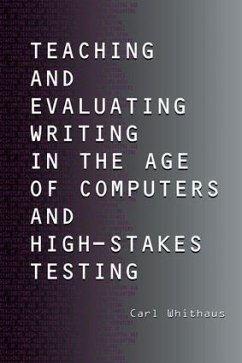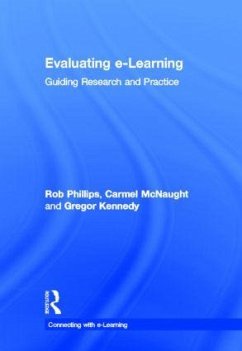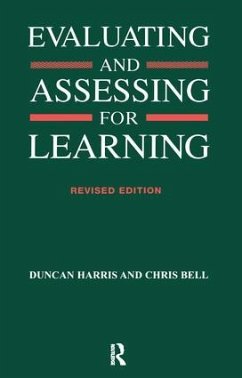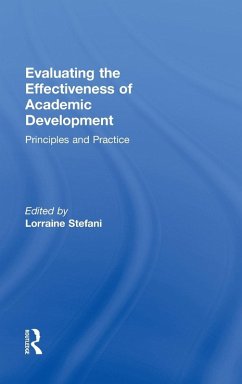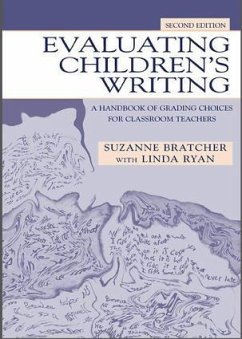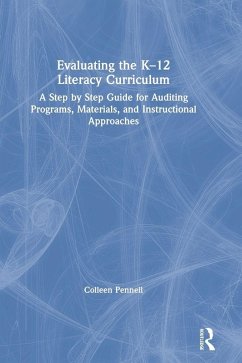
Evaluating Teaching and Learning
A practical handbook for colleges, universities and the scholarship of teaching
Versandkostenfrei!
Versandfertig in 1-2 Wochen
217,99 €
inkl. MwSt.
Weitere Ausgaben:

PAYBACK Punkte
109 °P sammeln!
Every semester, colleges and universities ask students to complete innumerable course and teaching evaluation questionnaires to evaluate the learning and teaching in courses they have taken. For many universities it is a requirement that all courses be evaluated every semester. The laudable rationale is that the feedback provided will enable instructors to improve their teaching and the curriculum, thus enhancing the quality of student learning. In spite of this there is little evidence that it does improve the quality of teaching and learning. Ratings only improve if the instruments and the presentation of results are sufficiently diagnostic to identify potential improvements and there is effective counselling. Evaluating Teaching and Learning explains how evaluation can be more effective in enhancing the quality of teaching and learning and introduces broader and more diverse forms of evaluation. This guide explains how to develop questionnaires and protocols which are valid, reliabile and diagnostic. It also contains proven instruments that have undergone appropriate testing procedures, together with a substantial item bank. The book looks at the specific national frameworks for the evaluation of teaching in use in the USA, UK and Australia. It caters for diverse methodologies, both quantitative and qualitative and offers solutions that allow evaluation at a wide range of levels: from classrooms to programmes to departments and entire institutions. With detail on all aspects of the main evaluation techniques and instruments, the authors show how effective evaluation can make use of a variety of approaches and combine them into an effective project. With a companion website which has listings of the questionnaires and item bank, this book will be of interest to those concerned with organising and conducting evaluation in a college, university, faculty or department. It will also appeal to those engaged in the scholarship of teaching and learning.





